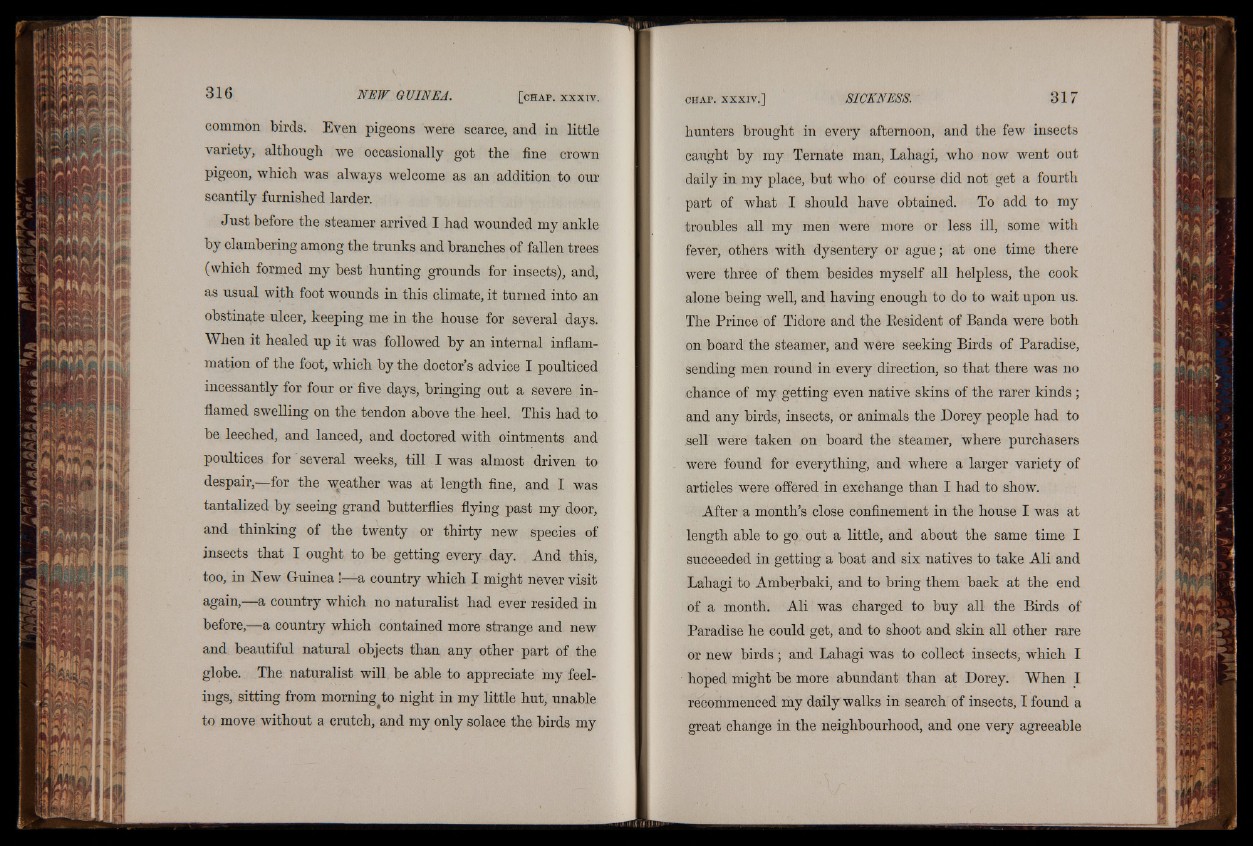
common birds. Even pigeons were scarce, and in little
variety, although we occasionally got the fine crown
pigeon, which was always welcome as an addition to our
scantily furnished larder.
Just before the steamer arrived I had wounded my ankle
by clambering among the trunks and branches of fallen trees
(which formed my best hunting grounds for insects), and,
as usual with foot wounds in this climate, it turned into an
obstinate ulcer, keeping me in the house for several days.
When it healed up it was followed by an internal inflammation
of the foot, which by the doctor’s advice I poulticed
incessantly for four or five days, bringing out a severe inflamed
swelling on the tendon above the heel. This had to
be leeched, and lanced, and doctored with ointments and
poultices for several weeks, till I was almost driven to
despair,—for the weather was at length fine, and I was
tantalized by seeing grand butterflies flying past my door,
and thinking of the twenty or thirty new species of
insects that I ought to be getting every day. And this,
too, in New Guinea !—a country which I might never visit
again,—a country which no naturalist had ever resided in
before,—a country which contained more strange and new
and beautiful natural objects than any other part of the
globe. The naturalist will be able to appreciate my feelings,
sitting from morning^to night in my little hut, unable
to move without a crutch, and my only solace the birds my
hunters brought in every afternoon, and the few insects
caught by my Ternate man, Lahagi, who now went out
daily in my place, but who of course did not get a fourth
part of what I should have obtained. To add to my
troubles all my men were more or less ill, some with
fever, others with dysentery or ague; at one time there
were three of them besides myself all helpless, the cook
alone being well, and having enough to do to wait upon us.
The Prince of Tidore and the Resident of Banda were both
on board the steamer, and were seeking Birds of Paradise,
sending men round in every direction, so that there was no
chance of my getting even native skins of the rarer kinds ;
and any birds, insects, or animals the Dorey people had to
sell were taken on board the steamer, where purchasers
were found for everything, and where a larger variety of
articles were offered in exchange than I had to show.
After a month’s close confinement in the house I was at
length able to go out a little, and about the same time I
succeeded in getting a boat and six natives to take Ali and
Lahagi to Amberbaki, and to bring them back at the end
of a month. Ali was charged to buy all the Birds of
Paradise he could get, and to shoot and skin all other rare
or new birds; and Lahagi was to collect insects, which I
hoped might be more abundant than at Dorey. When I
recommenced my daily walks in search of insects, I found a
great change in the neighbourhood, and one very agreeable